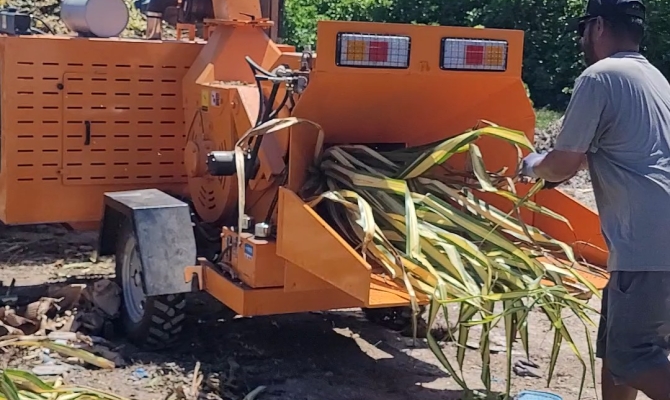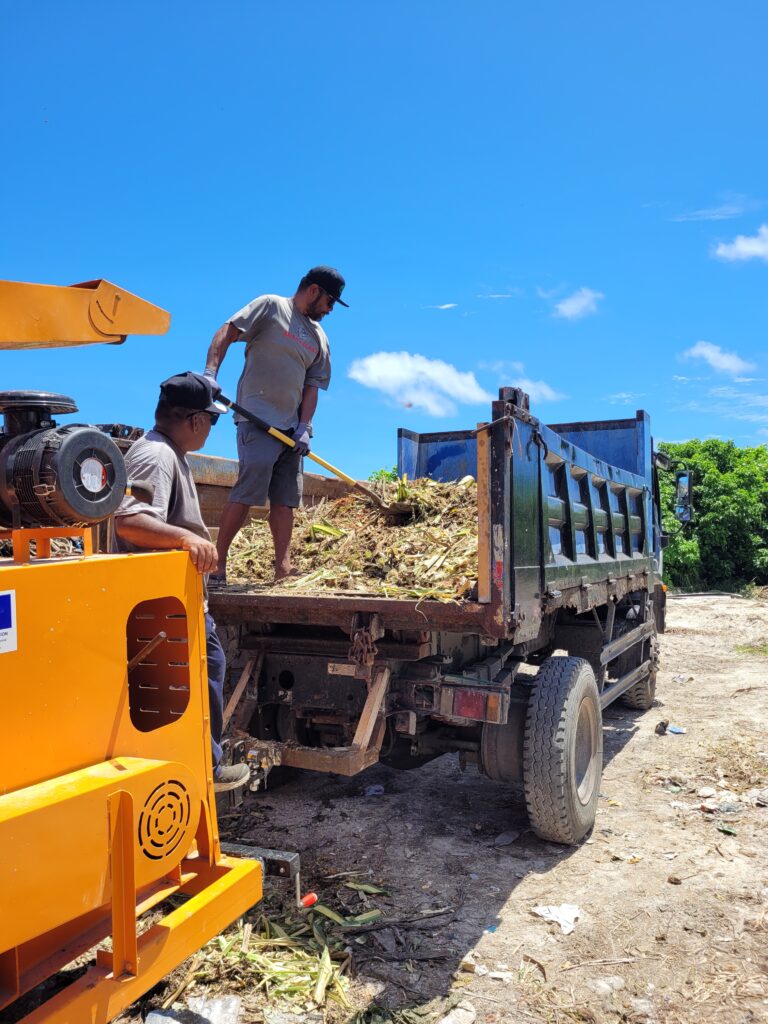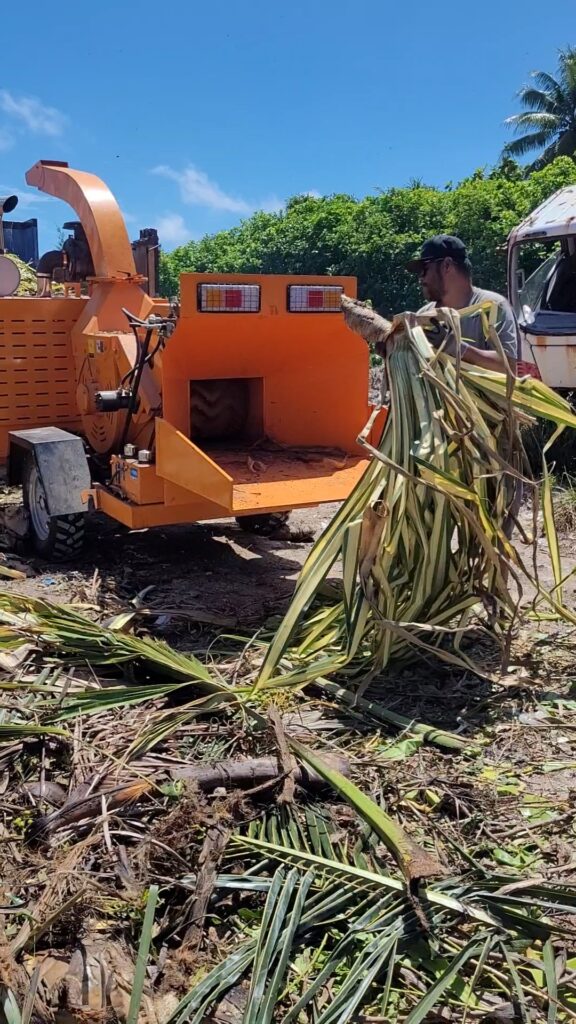News - Jul 15, 2024 Chipper boosts ability of Republic of Marshall Islands to manage organic materials

Managing organic material is a lot more efficient for the Majuro Atoll Waste Company (MAWC) in the Republic of Marshall Islands, with the arrival of a new heavy-duty chipper.
The new bright orange mobile chipper is currently in operating at the dumpsite, processing the organic material received into mulch for transport to the compost facility. Once this commissioning phase is over and the team familiar with the equipment, the chipper will be towed around the communities collecting and processing organic material at source.

The chipper was carefully chosen to process the high fibrous vegetation such as coconut fronds and pandanus common in Majuro. MAWC, in partnership with the EU-funded and SPREP-implemented PacWastePlus programme, undertook significant research prior to selecting the chosen chipper.
“Our existing chippers operate using blades,” said MAWC Operations Manager, Ms Jacqueline Lakmis. “We found we could only operate them for a limited time before they were jammed or overheated. This new chipper operated with a large drum, it sure makes short work of processing our tough this woody vegetation. We recommend this equipment to other Pacific nations.”

PacWastePlus Technical Officer, Ms Hilary Boyes joined the MAWC team for a morning during the processing of the organic material.
“The drum-chipper really preforms well. In about 2.15hr, we processed approximately 15m3 of tough organic materials such as whole pandanus plants, large dry coconut fronts, some tree trunks up to about 12 inches, even a couple of whole coconuts got into the input feed. The chipper processed them all with no hesitation. It was very satisfying!”
“The research suggests that ‘drum style’ chippers are better for processing this woody vegetation compared to blade, disc, or flywheel style chippers,” continued Ms Boyes “I am pleased we spent the time to get the right chipper for the MAWC team.”

The chipper underwent manufacture modifications to ensure it was fit for purpose for Majuro – with a larger engine to manage the expected volume of material and a swivel output feed so the team can choose whether the mulched material is blown straight onto the dump truck or sideways onto people yard.
The 15m3 was converted into about 5m3 of mulch. PacWastePlus will shortly publish a case study of the specs of the chipper and its performance processing the material in Majuro to assist other pacific countries to make an informed decision on the chipper appropriate for their vegetation.
Before selecting equipment, PacWastePlus recommends buyers to read operating manuals carefully and speak to suppliers and experts. If the manual only refers to wood as a suitable input or the manufacturer cannot supply evidence of the equipment managing high fibrous vegetation, further research may be required.

